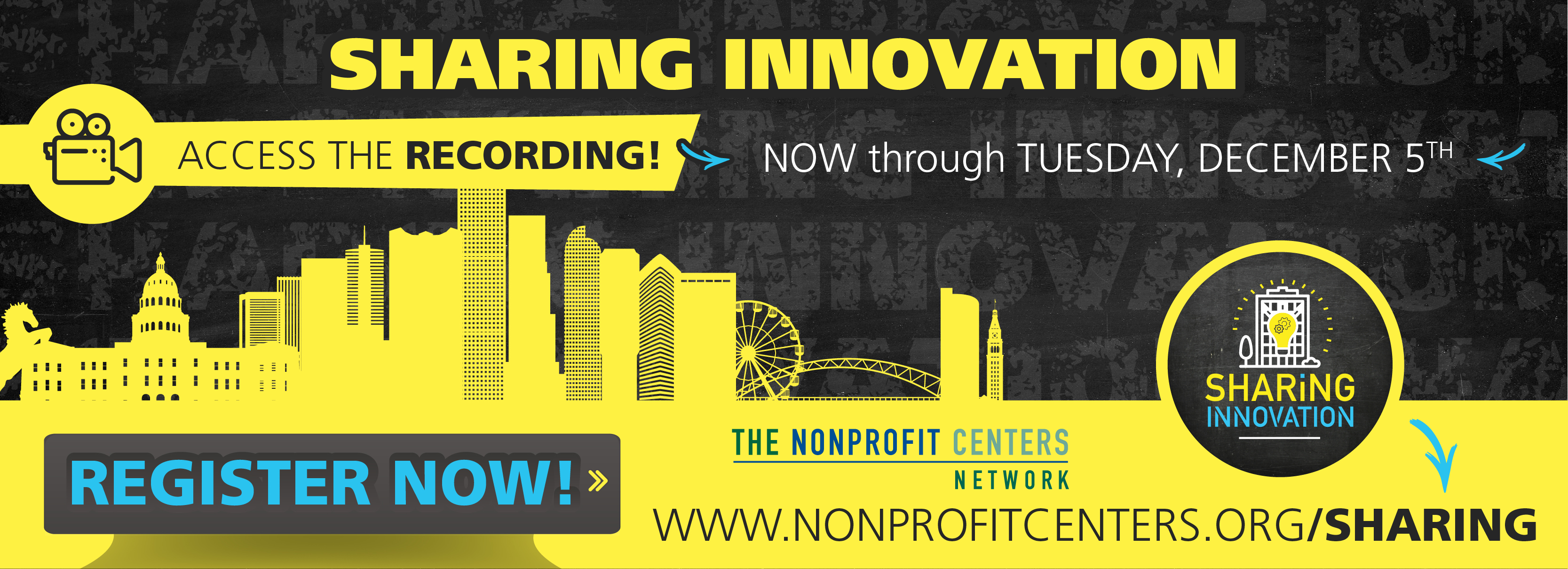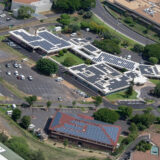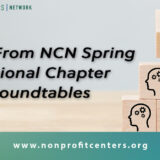Theme: Technology for Collaboration
Tools for Nonprofit Managers for Visualizing, Measuring, and Building
Cross-Sector Collaborative Networks
Dr. Danielle Varda, University of Colorado,
Denver, CO
In this workshop, Dr. Danielle Varda from the Center on Network Science (CNS) at UCD’s School of Public Affairs will present two online tools that nonprofit managers can use to collect real-world data in their effort to build, manage, and evaluate cross-sector networks. This talk will focus on how social network data can be translated into action and strategies in management practice. examples of their use in practice will be used to help managers understand their applicability to their work. For example, the WONDERbabies project will be presented, to demonstrate the tools’ use to address the challenges of complex systems of care (SOC) for babies and young children with special healthcare and developmental needs. Data on this SOC has been collected at two levels – the whole network and personal network levels – and the results analyzed and translated to inform the many cross-sector organizations, including providers, public health, community-based organizations, and others, on new policies and practice to strengthen this system for families of children with special healthcare needs. In this talk, Dr. Varda will discuss how her team (and thousands of others) use the PARTNER (Program to Analyze, Record, and Track Networks to Enhance Relationships) tool to collect social network data. Additionally, she will discuss the launch of the CNS’s second social network data collection and analysis tool, the Person-Centered Network App that is used in this research to collect data on personal support networks (and discuss why that is essential work to improving systems of care broadly). Brief demos of both the PARTNER and PCN App will be given to demonstrate how nonprofit managers can start using them on their own.
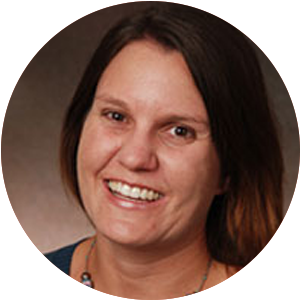
Danielle Varda is an Associate Professor at the School of Public Affairs, University of Colorado Denver and Director of the Center on Network Science. She is the founder of the Network Leadership Training Academy and the author of the PARTNER tool and the Person-Centered Network App. She is a published researcher, entrepreneur, teacher, and mother – working to translate network science to questions of how to build, manage, and evaluate effective community partnerships.
Community Developed
Collaborative Software for Nonprofits
Greg Bugbee and Dan Salazar, CCAT, Inc.
Greg Bugbee will explore the concept of community developed collaborative software that discovers needs and collaboratively develops Open Source technology solutions with the nonprofit community. They leverage a shared development model to ensure that any new customizations and improvements can be shared with the entire community. Bugbee and Salazar will be sharing the stories of success working with other nonprofits collaboratively developing Open Source software. In addition, they will explore two universal needs for nonprofit centers: the ability to increase the value of the physical space they manage through virtual tools and the ability for nonprofits to integrate data and processes with other nonprofits working towards common goals, e.g. fostering collaboration between substance abuse, housing, workforce development, and education nonprofits within a community or nonprofit center. The session will involve a brief introduction to CCAT’s work and success working with other nonprofits on Open Source projects, followed by group discussion on further opportunities for community developed collaborative software.
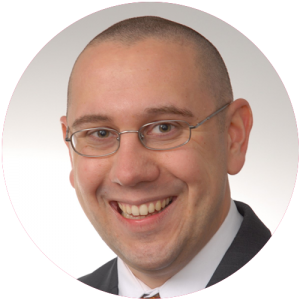
Greg Bugbee is the Senior Advisor at CCAT, a 501c3 nonprofit that leverages technology programs to improve economic and social outcomes for communities. Greg’s focus is evaluating client’s critical data and business processes towards creating greater security, efficiency, and sustainable organizational capacity. Recently, Greg has spearheaded efforts to deploy solutions that foster data sharing and collaboration between NGOs, foundations, and government entities. Greg has provided innovative, cost-effective, and secure technology solutions to non-profit, education, and government clients for over 18 years.
Theme: Adaptive Partnerships
How can Nonprofit Centers
Foster Catalytic Collaborations?
Reflections from the OpenGov Hub
Nada Zohdy, OpenGov Hub,
Denver, CO
Nada Zhody will be describing a framework she helped develop to think about nonprofit collaboration (called “Catalytic Collaboration”), how Open Gov Hub has put this into practice and what they are learning so far. Part One will give an introduction to the whole notion of “open government” as a field and explain why collaboration is not just nice but necessary to accomplish our ambitious and important global goals. Part Two will introduce the framework of Catalytic Collaboration, including the distinction between categorizing collaborations by structure vs. outcomes, and offering four defining traits of Catalytic Collaborations. Finally, Part Three will explain how Open Gov Hub is practicing this model, by emphasizing learning, systems thinking, democratic access to assets, and long term relationships in different ways. She will provide take-aways of how others can also apply this to their work as different types of nonprofit centers (whether themed, service centers, and/or generally social impact focused).
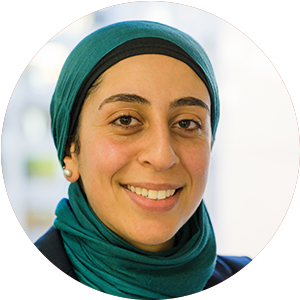
Nada Zohdy is Director of the Open Gov Hub in Washington, DC, a resource center and collaborative community of organizations promoting government transparency and accountability and civic engagement around the world. As Director she oversees all operations and leads the design and implementation of programs to promote collaboration across the Hub’s 40 member network. In 2015, she received a Master of Public Policy from the Harvard Kennedy School of Government, where she was a Pforzheimer Nonprofit Fellow and focused on linking democracy/governance with social entrepreneurship/innovation. She also performed research on nonprofit collaborations, published by the Stanford Social Innovation Review. Previously Nada was Founding Program Coordinator for Civil Society Partnerships at the Project on Middle East Democracy (POMED), where she created an unprecedented program that supported a dozen local watchdogs and think tanks in transitioning Arab countries in the wake of the Arab Spring. She is currently a board member for Rhize, an organization supporting emerging social movements around the world, and is a 2009 Truman Scholar.
Transactional to Transformational –
Building Trust to Strengthen a Community
Kathy Lanni, SEFCU
and
Allison Schwartz, Siena College
Transactional to Transformational will offer a case study of how two organizations moved from a transactional relationship to a deeper transformational one. At the outset, SEFCU funded ACE to develop a nonprofit business consulting firm. The goal in this transactional partnership was to help individual nonprofit organizations solve business problems. As part of the agreement, ACE met specific benchmark targets to show numbers of partner engagements, number of student fellows, and number of hours served. As the partnership grew, SEFCU provided additional funding with the caveat that NEXT grow the program’s capacity through matching funds from other donors. As NEXT flourished through its individual partner engagements, it was discovered that—to have true impact and work toward transforming the landscape of the community—the nature of their collaborative efforts had to be changed, and they must begin to assess community impact. This new, transformational model supports local organizations and community members as they lead the movement to address economic, social, and other disparities. NEXT’s communications platform where organizations can learn from each other, connect, network, and consult, is the first step toward building a nonprofit community excited to collaborate on programs that address the multiple and severe needs of many in their region.
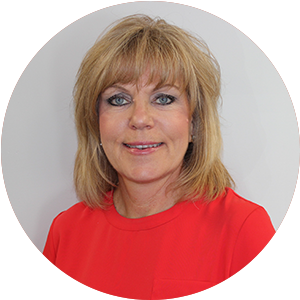
With more than 25 years of experience, Kathy Lanni is responsible for leading SEFCU’s Community Support and SEFCU Foundation activities, working collaboratively with non-profits to create programmatic gifts and volunteer opportunities that strengthen the community and improve lives of children and families through purposeful philanthropy.
Prior to joining SEFCU she was the vice president of national sales at Broadblast Inc., where she was responsible for business development, onboarding, training, and support for emergency notification software. Before that she co-founded REGALO A Gift Experience, a corporate gift consulting firm, growing from a small start up to revenues of more than $2 million earning her a number of awards including Albany County Chamber of Commerce Small Business of the Year, Diversity Magazine Top 100 Women-Owned Business, and Mass Mutual Small Business of the Year. Prior to opening REGALO, she worked at Albany Medical College as an Oncology Nurse in the Cancer Treatment Center. She earned a Bachelor of Science degree in Nursing from Russell Sage College.
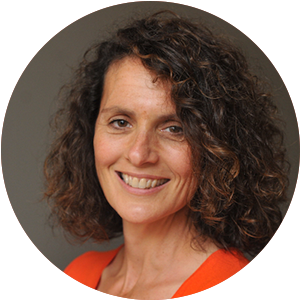
Allison Schultz is the Director of Programs at the Center for Academic Community Engagement (ACE) at Siena College. Through the center’s nine programs for undergraduate students and postgraduate members, she supports the center’s mission to create agents of change in the community and beyond. Schultz has more than 20 years of experience developing co-curricular programs that encourage college and high school students to engage thoughtfully and purposely in their academic journey both in- and outside of the classroom. She also has experience in community development, college admissions, academic advising, and financial aid counseling. She earned a Bachelor of Arts degree in Government from Cornell University and a Master of Public Policy degree from Georgetown University.
Theme: Smart Growth
Know When to Hold ‘Em:
Strategies for Nonprofit Real Estate
Saul Ettlin, Northern California Community Loan Fund, CA
Nonprofits’ thin margins, geographic constraints and specialized space needs can leave organizations at a deep disadvantage as they navigate commercial real estate markets. They need long runways to assemble capital and build consensus to make a purchase. Meanwhile the commercial real estate market gives preference to fast cash and transactional expertise. A tested strategy to address this misalignment—and one that should be scaled—is the nonprofit real estate holding entity. Nonprofit real estate holding entities help the sector by bringing ongoing, focused expertise to solve real estate challenges in local committees. They acquire, develop, and operate commercial buildings to either hold and lease space or to create ownership opportunities for other nonprofits.
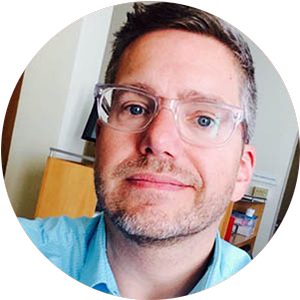
Saul Ettlin is a Nonprofit Real Estate Consultant with the Northern California Community Loan Fund (NCCLF) where he assists a wide range of organizations with their space needs and challenges. Previously, Saul was the Collaboration + Space Manager for Tides where he was, among other things, part of the real estate team operating the Thoreau Centers in San Francisco and New York totaling 225,000 sq. ft. and home to more than 100 organizations. Also during his time at Tides, he served as Program Coordinator for the Nonprofit Centers Network. Beyond space, Saul has significant grassroots political and organizing experience. Saul has over 15 years of nonprofit management experience and is deeply committed to building organizational strength through collective action. He holds a MPA with a concentration in Nonprofit Management and a BS in Political Science and Community Development. Both are from Portland State University.
How Many Non-Profit Centers Do You Really Need?
Paul Evensen, Social Innovation St. Louis,
St. Louis, MO
Very few metro areas in the US have attempted a regional strategy for Social Purpose Real Estate (SPRE). St Louis has agreed on principles to guide a SPRE strategy and are working to create a regional network of nonprofit centers to strengthen the social sector and St. Louis neighborhoods. The majority of centers will assure access to essential services but others will promote nonprofit innovation, revenue, and organizational development. A hub and spoke network is emerging in St Louis anchored by the redevelopment of a 500,000 sq. ft. historic hospital into a regional hub and national center. Multiple “spokes” are in development from new-construction to the conversion of smaller strip malls and churches. In every case, collaboration is key to success including neighborhood leaders, communities of faith, nonprofit organizations, elected officials, universities, developers, and donors. Social Innovation St. Louis is focused on three results – (1) the measurable mission benefits individual nonprofits can gain through collocation; (2) the social and economic development of our neighborhoods and communities; and (3) the capacity of the region’s social sector to improve regional outcomes.
Paul Evensen is the founder and currently the director of Social Innovation St Louis. Prior to starting Social Innovation STL, Paul lead the Forum for Youth Investment’s national “Ready by 21” community planning and evaluation work and was the President of Community Systems Group, Inc. Paul is the founder of several for-profit and not-for-profit organizations including Community Systems Group, Affirm Youth, and ProJustice Carolina.
Paul has more than twenty years of experience as a coalition director, evaluator, and board member. As an evaluator he has supported hundreds of community coalitions across the country working to reduce substance abuse, teen pregnancy, HIV, homelessness, and crime and to promote active living, literacy, better nutrition, and graduation rates.
Paul completed his doctorate at the World Health Organization’s Collaborating Center for Community Health and Development at the University of Kansas.
Theme: Sustainability
Applying Biomimicry Principals for Shared Space Innovation
Katy Sheehan and Summer Hess,
Community Building
The Community Building Campus (CBC) is a nonprofit center and small business incubator that has served as a dynamic hub for changemakers and local innovators for nearly 20 years. For the last 15 years, growth has meant physical expansion by renovating historic buildings to create interdisciplinary, social profit real estate. Now that CBC is no longer physically expanding, we are focused on fostering growth and measuring success outside of traditional metrics. For example, long-term tenants and infrequent turnover can be seen as a sign of success. On the other hand, the lack of turnover means the center risks stagnation. CBC feels it is critical to continue to break down siloes and invest in the conditions for intersectional collaboration. The shifting challenge is: how do you keep innovating within a finite space? In this session, Sheehan and Hess will explore how biomimicry principles have helped cultivate inclusive and resilient innovation strategies and nourish a dynamic and evolving system. Biomimicry principles applied in a shared space context include a systems and values based approach that would optimize resiliency and adaptation and ultimately be life supporting. They will introduce these principles, describe how they apply them in a new co-working/shared space project, and lead a discussion on applying these principles for other shared space innovation.
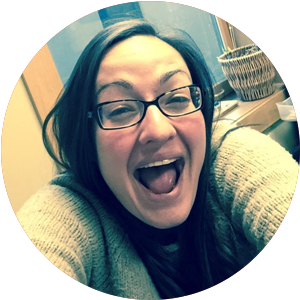
Katy Sheehan in a nutshell today: She loves her family, friends, and nature. Sometimes she follows, sometimes she leads. She is a late-night reader. She studied art at Lewis and Clark College and law at the City University of New York School of Law. As the Executive Director of the Community Building Foundation, she balances the concepts of community building as both a noun/place and a verb/action. At home she does not usually answer phone calls. She and her husband raise two small kids with big personalities and sometimes they play music.
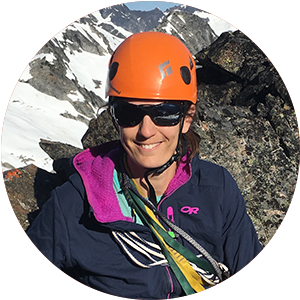
Summer Hess is a project manager with the Community Building, a 5-building campus that serves as a nonprofit center, arts space, and local food hub. Her work is informed by a background in nonfiction writing and a keen interest in place making and civic life. She is currently helping to launch Niche, a co-working community, and is also writing book about the Community Building’s role in Spokane since its inception nearly 20 years ago.
AC to DC Conversion
Sandy Vanderstoep, The Alliance Center,
Denver, CO
The Alliance Center, an historic building in LoDo, serves as the site for proof of concept and a field laboratory for the use of a direct current microgrid in an existing commercial building. This pilot project is designed to measure and verify energy efficiency gains through the local on-site generation, storage and distribution of Low Voltage Direct Current. The fifty Alliance Center tenant organizations all have missions focused on aspects of sustainability. They understand and appreciate they’re participating in an experiment to improve efficiency while using renewable energy, and building a more resilient system with battery storage, which is the hope for the future. Almost twenty percent of the tenant organizations are active, collaborative partners: that kind of cooperation and collaboration doesn’t happen in a traditional commercial building. The DC Project is getting a great deal of support from City of Denver and private companies who appreciate the potential benefits of this experiment. The team, led by PVI as the forward leaning generation contractor, is using the Alliance Center DC Project as a roadmap, and is now prepared to do DC micro-grid installations in other buildings.
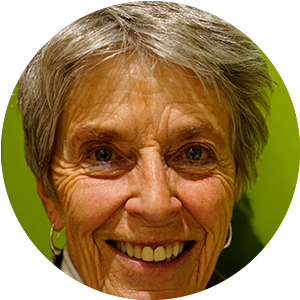
In December, 2016, Sandra Vanderstoep was named Project Manager for PVI CM to oversee the DC Test Bed at the Alliance Center, from design to full function. As project manager, Sandra is responsible for project execution, soliciting funding, data and project information dissemination. She previously assembled a peer review team of engineers, architects, social scientists, attorneys, alongside direct current experts to guide the project, as the DC Microgrid Project Director at the Alliance Center. As Special Projects Director for Alliance for Sustainable Colorado, she engaged to provide creative funding through tax credits for the 12.9M renovation of the Alliance Center, which utilized Federal Historic Tax Credits and State Historic Tax Credits to fund 20% of the $12M renovation.
Prior to her engagement at the Alliance for Sustainable Colorado, Sandra had focused on honing her skills in the small business start-up world. The opportunities in business allowed Ms. Vanderstoep to work in small business ownership and management from manufacturing to agricultural products to the food industry. In these diverse setting, Ms. Vanderstoep developed passionate, productive teams that worked together to create a special relationship with each other and the clients that they served.
Event Agenda:
Breakfast will begin at 8am.
The event will run 9am – 3:30pm, followed by an off-site happy hour, 3:30-5pm.
For those who arrive the day before on November 8th, we will be providing a Shared Space map for folks to do a self-guided tour, between 1 and 5pm. We will also have a no-host happy hour/dinner, 5-7pm, location TBD.
Denver Location Details:
The Alliance Center
1536 Wynkoop Street
Denver, CO 80206
(We are one block from Union Station, which can be reached via the A Line from Denver International Airport.)




